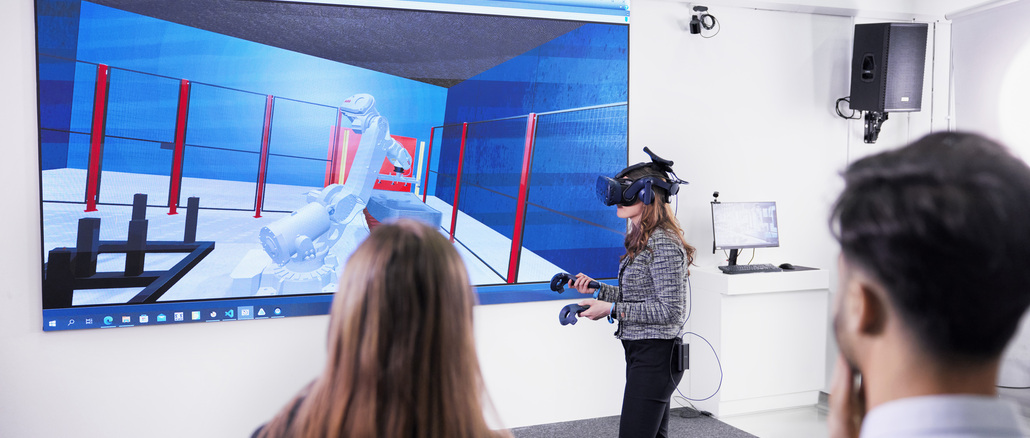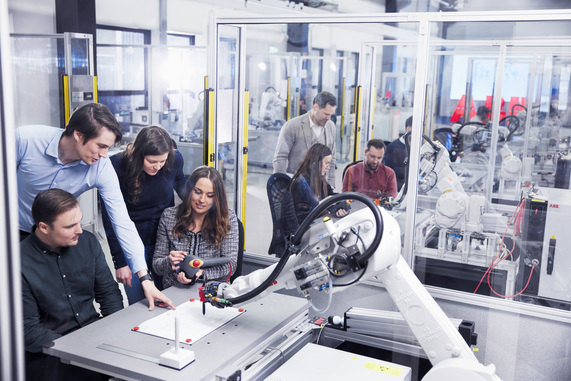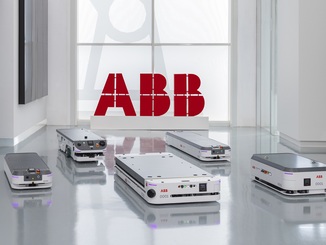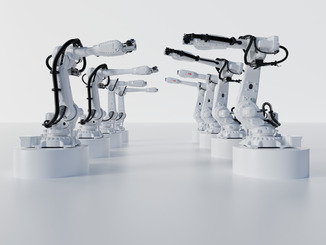
Although 84 percent of German companies and 75 percent of European companies plan to invest in robotics and automation over the next three years due to shifts in the supply chain, only one in four educational institutions uses robots in training. ABB wants to remedy the situation.
The global “ABB Supply Chain Study 2022” shows an increasing trend in German and European companies to relocate their business to their home country or nearby (so-called reshoring/nearshoring). In the face of global challenges, they want to make their supply chains more resilient. At the same time, however, there is a significant training gap in the skills needed to make these strategies successful.
“The world is evolving ceaselessly – companies are facing a multitude of challenges and uncertainties. To remain fit for the future, they are shifting their existing structures and relying on new technologies. Automation through robotics is playing a key role in this,” noted Sami Atiya, member of the group’s executive board and president of ABB’s robotics and manufacturing automation business. “We must continually invest in education and training to prepare our existing and future workforce for the age of robotics and automation. In doing so, we arm ourselves for changes in global industry and strengthen the society of the future.”

© ABB
ABB’s 2022 survey of German and European executives also found that 86 percent of German companies and 74 percent of European companies intend to re- or nearshore their business to make it more resilient in the face of labor shortages, increased focus on sustainability and global uncertainties.
The majority of these companies see automation as the key to these shifts. For example, 84 percent of German and 75 percent of European companies surveyed plan to invest in robotics and automation over the next three years to enable reshoring or nearshoring.
Despite the interest in automation, ABB’s 2022 Global Training Survey found a need to catch up in education and training to gain the skills needed to work in the connected and automated workplaces of the future. Of the education experts surveyed worldwide, 80 percent believe that robotics and automation will shape the future of employment over the next decade. Yet only one in four educational institutions currently uses robots as part of their teaching programs.
To address the skills gap, ABB has strengthened its international robotics and automation training program with new training centers, including a €100 million investment in its global innovation and training campus in Austria.
In addition, Chancellor Olaf Scholz was recently a guest at the inauguration ceremony of the “Learning Factory Industry 4.0” extension of the ABB Training Center in Berlin. This training year, the ABB Training Center is onboarding 205 apprentices in 17 different trades to help them learn the skills they need to succeed in the Industry 4.0 world.
With the new site and other new training centers in the UK and Brazil, ABB expands its training offering to more than 40 sites worldwide, training more than 30,000 students, apprentices and employees annually.
The sites complement ABB’s existing educational offerings, which include software packages such as ABB Wizard Easy Programming, RobotStudio and the RobotStudio AR Viewer app, as well as collaborative robot cells and application packages. Through more than 100 partnerships with schools and universities worldwide, ABB works with education providers to create curricula to help educate future generations and prepare them for tomorrow’s workforce.
“Change must happen now,” Atiya added. “Companies are turning to robotic automation to offset labor shortages, improve efficiency and increase resilience. That’s why workers need to be able to leverage automation to do their jobs and expand their own roles. Companies must join forces and work with educational institutions and governments to ensure society is prepared for the job market of the future. Only in this way can we fully deploy flexible automation and seize the opportunities of the industrialization push for Europe. ”




